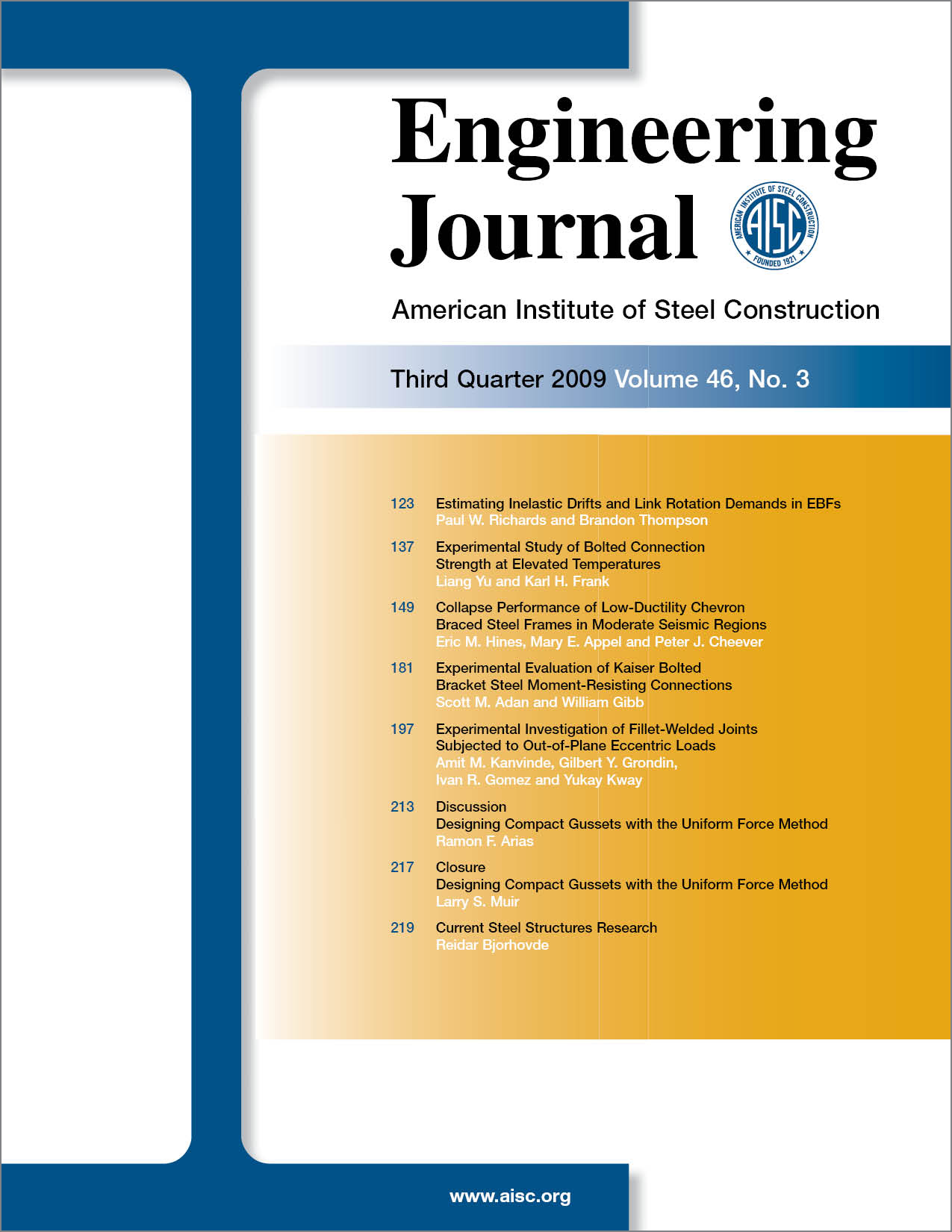Experimental Study of Bolted Connection Strength at Elevated Temperatures
DOI:
https://doi.org/10.62913/engj.v46i3.958Keywords:
bolts, fire and temperature effects, connections – simple shearAbstract
Single bolt (A325) connections were tested at temperature up to 800 C (1472 F) to investigate the effect of temperature upon their bearing capacity. Significant stiffness and strength losses were found between 400 C (752 F) and 800 C (1472 F). The failure mode changes from bearing to bolt shear between 300 C (572 F) and 400 C (752 F). Two-bolt (A490) connections are tested from ambient temperature to 800 C (1472 F) to study the effect of temperature upon the block shear capacity. Both the stiffness and the strength of the two-bolt connections decrease between 400 C (752 F) and 800 C (1472 F). The estimated strengths of steel at elevated temperatures given in the Appendix 4 of the 2005 AISC specification overestimated the strength of the connections which failed in block shear of the plate or shear of the bolts. The constant load test results agreed well with constant temperature quasi static test results indicating that creep under constant load does not change the strength of connection at elevated temperature. Residual slip resistance capacity of fully tightened A490 bolt connection was tested after exposure to temperatures up to 800 C (1472 F). After exposure to a temperature above 400 C (752 F), the slip load resistance reduces considerably.

